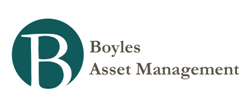The Big Idea: Before You Make That Big Decision... - by Daniel Kahneman, Dan Lovallo, and Olivier Sibony
Found via Farnam Street.
Thanks to a slew of popular new books, many executives today realize how biases can distort reasoning in business. Confirmation bias, for instance, leads people to ignore evidence that contradicts their preconceived notions. Anchoring causes them to weigh one piece of information too heavily in making decisions; loss aversion makes them too cautious. In our experience, however, awareness of the effects of biases has done little to improve the quality of business decisions at either the individual or the organizational level.
Though there may now be far more talk of biases among managers, talk alone will not eliminate them. But it is possible to take steps to counteract them. A recent McKinsey study of more than 1,000 major business investments showed that when organizations worked at reducing the effect of bias in their decision-making processes, they achieved returns up to seven percentage points higher. (For more on this study, see “The Case for Behavioral Strategy,” McKinsey Quarterly, March 2010.) Reducing bias makes a difference. In this article, we will describe a straightforward way to detect bias and minimize its effects in the most common kind of decision that executives make: reviewing a recommendation from someone else and determining whether to accept it, reject it, or pass it on to the next level.
- Edge Conversation With Rory Sutherland: This Thing For Which We Have No Name
Link to video and conversation text: This Thing For Which We Have No Name "No one ever got fired for buying IBM" is a wonderful example of understanding loss aversion or "defensive decision making". The advertising and marketing industry kind of...
- The 12 Cognitive Biases That Prevent You From Being Rational
The human brain is capable of 10^16 processes per second, which makes it far more powerful than any computer currently in existence. But that doesn't mean our brains don't have major limitations. The lowly calculator can do math thousands of times...
- Morningstar Interview With Jason Zweig
Found via Simoleon Sense. The biggest and most surprising lesson to me came in an experiment that I did at Emory University. It was an example of what Gregory Berns, the neuroscientist who did the experiment, calls "learning without awareness." It turns...
- The Structure Of “unstructured” Decision Processes - 1976 Paper
How do organisations go about making “unstructured,” “strategic” decisions? Researchers of administrative processes have paid little attention to such decisions, preferring instead to concentrate on routine operating decisions, those more accessible...
- Applying Behavioral Finance To Value Investing - Presentation By Whitney Tilson
Common Mental Mistakes - 1) Overconfidence 2) Projecting the immediate past into the distant future 3) Herd-like behavior (social proof), driven by a desire to be part of the crowd or an assumption that the crowd is omniscient 4) Misunderstanding randomness;...

